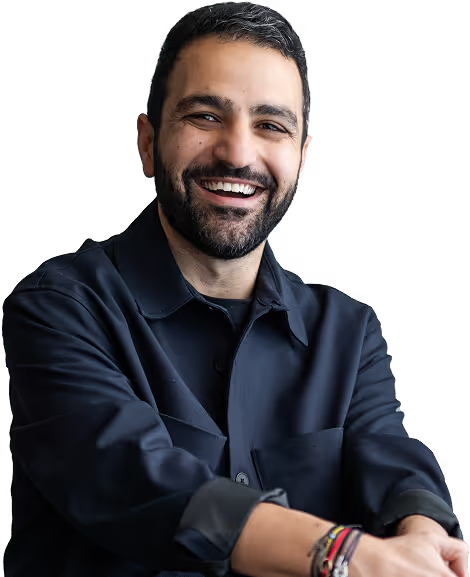IVF is unpredictable...
Nader founded Gaia to give others the hope, security, and experience he wished they’d had.
Pay for your IVF with Gaia — get one fixed price, complete protection & no surprises.
3 min | No credit card required














































Gaia is a solution for fertility patients that allows them to pay for treatment in a simple, smart, and supportive way. Gaia offers all-inclusive plans with no hidden costs. These plans cover everything the patient needs including mandatory items often hidden in clinic quotes such as anesthesia, monitoring, and storage. Gaia Plans also offer protection against adverse outcomes of treatment and spiraling costs. For IVF for example, Gaia will cover all embryo transfer cycles at no extra cost whereas clinics will charge thousands of dollars per additional embryo transfer. Finally, Gaia’s support is second to none. We offer patients concierge support but also access to complimentary services to increase their chances of success - such as a nutritional guide, a therapy session, and a consultation with an independent fertility nurse.
Gaia partners directly with leading fertility clinics across the U.S. to make IVF payments simple and transparent. Gaia’s close partnerships with these clinics allow us to offer excellent rates to patients. This also means you pay Gaia once (or monthly, if financing), and we take care of all the individual bills from your clinic, pharmacy, and other providers throughout treatment—so you never have to manage multiple invoices or surprise charges.
You are eligible for a Gaia Plan regardless of your age, whether you have a child already, have been through fertility treatment before, have frozen eggs or embryos stored already, or are partially covered by insurance. We can't currently offer you a plan if you're in need of a surrogate.
Yes, Gaia can help you access financing in order to purchase your Gaia Plan and pay monthly for your treatment, but credit eligibility criteria does apply. If you live in a state where Gaia is able to lend directly, then you can apply for a loan to cover all or some of the cost of your Gaia Plan, and pay us monthly for treatment. If you live in a state where Gaia is unable to lend directly, we partner with a reputable lending marketplace called Upstart to help you secure a loan to use towards your treatment.